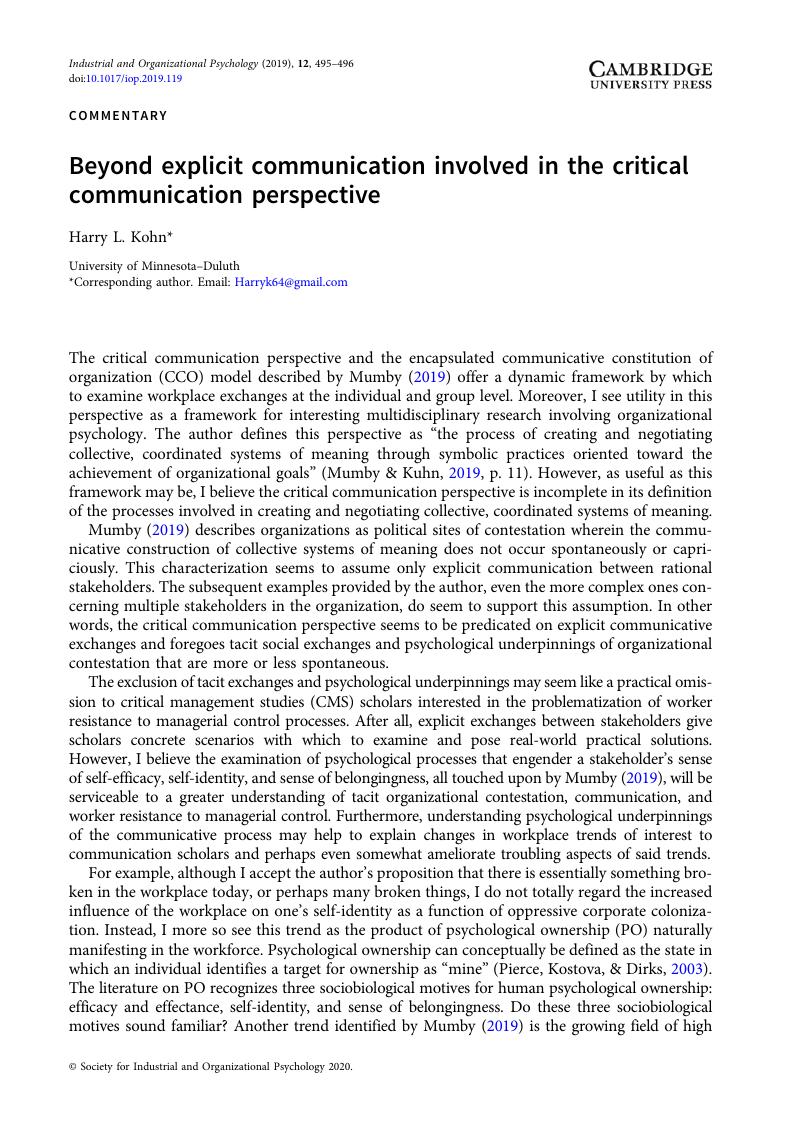No CrossRef data available.
Article contents
Beyond explicit communication involved in the critical communication perspective
Published online by Cambridge University Press: 14 January 2020
Abstract
An abstract is not available for this content so a preview has been provided. Please use the Get access link above for information on how to access this content.

- Type
- Commentaries
- Information
- Copyright
- © Society for Industrial and Organizational Psychology 2020
References
Beggan, J. K., & Brown, E. M. (1994). Association as a psychological justification for ownership. Journal of Psychology, 128, 365–380.CrossRefGoogle Scholar
Mumby, D. K. (2019). Work: What is it good for? (Absolutely nothing)—a critical theorist’s perspective. Industrial and Organizational Psychology: Perspectives on Science and Practice, 12(4), 429–443.Google Scholar
Mumby, D. K., & Kuhn, T. (2019). Organizational communication: A critical introduction. Los Angeles, CA: SAGE.Google Scholar
Pierce, J. L., Kostova, T., & Dirks, K.T. (2001). Toward a theory of psychological ownership in organizations. Academy of Management Review, 26, 298–310.CrossRefGoogle Scholar
Pierce, J. L., Kostova, T., & Dirks, K. T. (2003). The state of psychological ownership: Integrating and extending a century of research. Review of General Psychology, 7(1), 84–107.CrossRefGoogle Scholar


